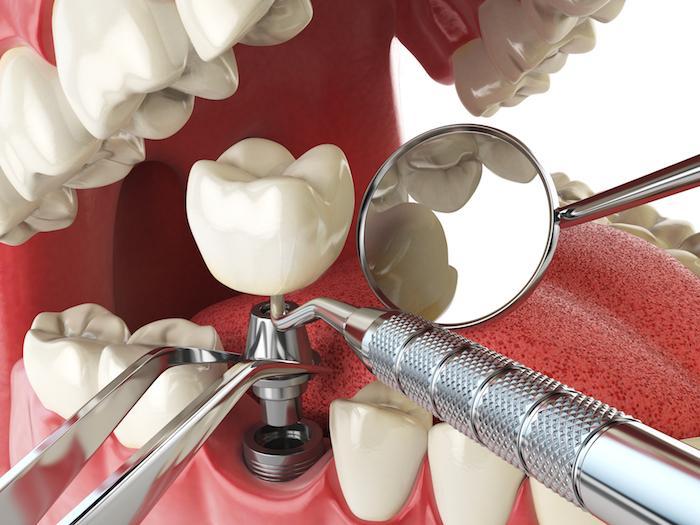Bridges and implants both replace missing teeth, and both offer unique benefits. If you’re wondering which one to choose, this post offers a quick overview of the most important considerations for each option.

Roughly 120 million American men and women — nearly half the adult population — are missing at least one tooth, according to the American College of Prosthodontists. Missing teeth aren’t just a cosmetic problem. Even a single lost tooth can lead to significant oral health issues, including more lost teeth.
A leading dentistry practice in the Koreatown neighborhood of Los Angeles, Nobel Dentistry offers both bridges and implants to help patients avoid the “side effects” of tooth loss while restoring their smiles and confidence. Here’s how these two popular options compare to help you decide which is a better choice for you.
Dental bridges: Pros and cons
Dental bridges are appropriately named because their design is intended to “bridge” a gap left by one or more missing teeth. Bridges are a popular alternative to partial dentures because they’re typically more secure and feel more natural than a denture.
A dental bridge consists of a metal framework supporting one or more “artificial” teeth or crowns and attaches to the teeth on either side of the gap. Usually, we apply crowns to these teeth to provide added strength and protection. Bridges can be removable or permanently affixed using a special adhesive.
Compared to dentures, bridges help you speak and eat confidently, thanks to their added security. Bridges typically take two office visits: one to prepare the area for the bridge and one to place the final bridge in position.
One drawback to a dental bridge is that it can take some practice to clean it properly. Brushing and flossing are essential for keeping the underlying gum healthy, and our team can help you learn optimal care techniques to prevent gum disease.
Dental implants: Pros and cons
Dental implants are designed to replace a single missing tooth, but you can have more than one dental implant if you miss more than one tooth. Implants consist of three parts: the post embedded in your jaw, the artificial tooth or crown, and a joining piece called an abutment.
Like bridges, implants usually require two visits. During the first visit, the post is implanted and left to bond with the surrounding bone tissue, which takes several weeks. The abutment and crown are attached and shaped at the second visit for a secure, comfortable fit.
Implants have become extremely popular in recent years because they’re designed to feel, look, and “work” like natural teeth. The embedded post makes implants extremely secure, and their natural design also means you can care for them with regular brushing and flossing.
Dental implants are designed to replace a single missing tooth, but you can have more than one dental implant if you miss more than one tooth. Implants consist of three parts: the post embedded in your jaw, the artificial tooth or crown, and a joining piece called an abutment.
Making the right choice
Bridges tend to be a more cost-effective solution compared with dental implants, but because they need teeth on either side for support, they can’t be used in areas that lack those neighboring teeth.
Dental implants offer another key advantage over bridges: Because they’re anchored in your jaw bone, implants help sustain the natural bone replacement cycle that keeps your jaw bone healthy. WIthout the stimulation of the implant (or your natural tooth root), the jaw bone under a bridge will gradually atrophy, becoming thinner and potentially leading to additional tooth loss.
Finally, because a bridge is not implanted into your bone, their placement doesn’t require surgery or anesthesia. If you have a medical condition that prohibits anesthesia or makes this type of procedure risky, then a bridge is a good alternative for you.
Don’t ignore missing teeth
Regardless of which option you choose, the most important thing to remember is this: You should never ignore a missing tooth. Not only can missing teeth affect the way you speak, the way you look, and the way you eat, but they may also increase your risk of other oral health problems, including additional missing teeth.
To learn more about dental bridges and dental implants and how they can help you maintain your oral health, call 213-386-7173 or book an appointment online with the team at Nobel Dentistry today.
